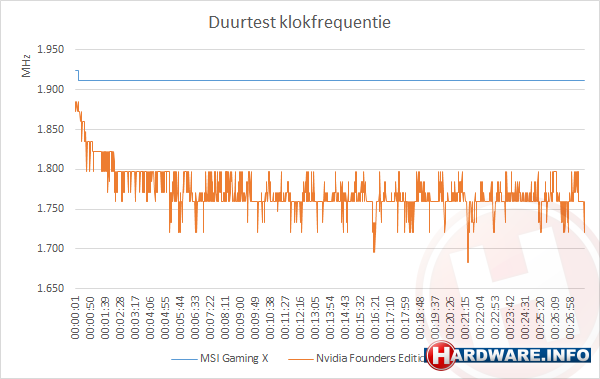Points:
1) I see no problems indicated in your graph.
POWER is supposed to fluctuate like that. Not ever frame takes the same amount of power, so the card is constantly adjusting the voltage draw to minimize the heat produced. Intel does the same thing on its CPU's.
2) I suspect it's an issue with the GAME itself, but I can't test it.
3) *I'm no expert, but I don't understand how the graphics card could be causing the stutter as the GPU frequency is running without fluctuating (core clock). It can also work fine with fluctuating but where you say you have issues it's not fluctuating.
There may be something I'm missing though, and even if it's not hardware there can be driver settings that need to be fixed.
4) GPU settings:
As I said before, go back to default and see if that helps though not sure why it would.
5) GAME settings:
Any time a games stutters you should:
a) Drop settings really low, and
b) disable VSYNC
If the obvious stutter disappears then increase the settings a few at a time and see if a particular setting is causing issues.
Other:
a) The 8-pin is plenty of power for that card. That's been proven.
b) As said, they are tweaking the fan profile though that's not going to affect stuttering like this.
c) These cards are designed to run near 82degC. That's quite safe. Once you figure out the best overclocking vs noise profile you should just leave it alone. Not sure about the Founders card but other non-reference ones allow 93degC on the GPU. 82degC was chosen to be a really reliable temperature to hit regularly. The higher you go above this the less life the GPU has though it's hard to predict.
Anyway, do not worry about hitting the default throttle point in terms of life of the GPU.
d) Games vary in how hot they make the GPU. Some will hit 82degC and throttle down. If that happens fairly often you may want to investigate a case with a side fan to blow air OVER the graphics card in addition to proper air flow.
A CPU liquid cooler will also remove heat directly (rad fan as exhaust) thus the internal case won't get as hot as it would with an air cooler. I don't know how much benefit there would be.
e) GPU Boost 3.0's per voltage point utility will improve a little bit in the future.
Summary:
A lot of confusion about how cards work, but at the very least i see no issues with your hardware.
Your performance is mostly going to be limited by GPU temperature for the Founders card. You can optimize that profile by adjusting a few settings, but once that's done you'd the all you can do is try to reduce temp of the GPU via:
a) side fan
b) CPU liquid cooler
c) improve case air flow
The side fan would likely give the largest benefit, and the others depend on how good your current setup is already.



